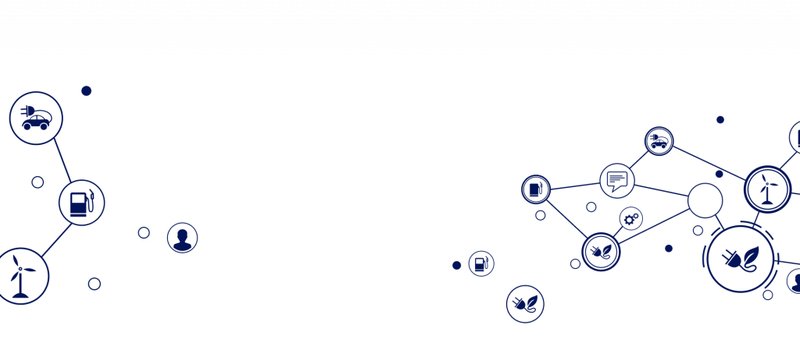
In today’s fast-paced world, the ability to continuously learn and adapt is essential. Workshops, as dynamic and interactive educational experiences, have emerged as an invaluable tool for acquiring new skills, solving complex problems, and fostering collaboration. Whether for professional growth, personal development, or exploring new creative outlets, workshops provide an immersive environment where participants can learn, experiment, and thrive. In this article, we’ll explore the significance of workshops, the numerous benefits they offer, and how they stand apart from other forms of learning.
What is a Workshop?
A workshop is a type of interactive educational session that emphasizes active participation rather than passive learning. Unlike traditional lectures or seminars, workshops are designed to be hands-on, encouraging attendees to engage directly with the content through activities, discussions, and exercises. Whether conducted in person or online, workshops focus on practical application, real-time problem-solving, and collaborative learning.
Workshops vary greatly in length, structure, and focus. Some workshops last for a few hours, while others span several days. The central aim is to provide an immersive, focused learning experience that enables participants to gain both theoretical knowledge and practical skills that can be immediately applied.
Why Are Workshops Effective?
Workshops are an effective learning method because they foster engagement, promote critical thinking, and enable immediate feedback. Here are several reasons why workshops are considered a superior way to learn:
1. Active Learning and Engagement
One of the greatest advantages of workshops is their emphasis on active learning. Participants are not just absorbing information but engaging with the material in a meaningful way. Whether through group discussions, role-playing, hands-on tasks, or problem-solving activities, 學校興趣班 encourage participants to think critically, make decisions, and apply their knowledge in real-world contexts.
For instance, in a coding workshop, participants will not only learn the theory behind programming languages but will also write code, troubleshoot problems, and collaborate with others to solve challenges. This type of active learning helps cement the knowledge gained and builds practical skills that can be used in real-life scenarios.
2. Collaboration and Networking
Another key benefit of workshops is the opportunity for collaboration. Many workshops are structured to encourage group work, providing participants the chance to share ideas, learn from others, and develop valuable networking connections. Working in teams or small groups promotes collaboration, fosters diverse perspectives, and helps individuals build their communication and teamwork skills.
For example, a design workshop might involve working together to create a project or prototype, allowing participants to bounce ideas off each other and learn different techniques and approaches from their peers. The relationships formed in workshops can also extend beyond the event itself, leading to lasting collaborations and professional opportunities.
3. Real-Time Feedback
Unlike traditional classrooms where feedback may come at the end of a course or even weeks later, workshops provide participants with immediate feedback. This real-time interaction allows participants to adjust and improve their understanding or skills while they are still engaged in the learning process.
In a cooking workshop, for example, participants might prepare dishes under the guidance of an experienced chef, receiving instant feedback on their technique, taste, and presentation. This kind of immediate, constructive criticism is invaluable for improving performance and building confidence.
4. Practical, Hands-On Experience
Workshops provide a valuable opportunity for participants to gain hands-on experience. This practical approach is essential for mastering certain skills. For instance, a photography workshop would allow attendees to take photos in various environments, learning how to adjust settings based on lighting, framing, and composition. Similarly, a business workshop might involve participants creating business plans, learning how to navigate obstacles, and understanding how to implement strategies in a controlled, guided setting.
Such experiential learning bridges the gap between theory and practice, ensuring participants are not only knowledgeable but also capable of applying their knowledge in real-world settings.
5. Flexibility and Customization
Workshops are highly customizable and flexible, allowing organizers to tailor content based on the needs and goals of participants. Whether it's a one-day workshop focused on a specific skill or a multi-session course designed to cover a broader topic, workshops can be adapted to suit diverse audiences and learning objectives.
For instance, a leadership workshop could range from focusing on communication skills for entry-level managers to advanced strategic thinking for executives. This flexibility makes workshops accessible to a wide range of learners, regardless of their experience level or area of expertise.
Different Types of Workshops
Workshops cover an extensive array of topics, catering to a variety of needs, from personal development to technical skills. Here are just a few of the most popular types of workshops:
1. Career Development and Professional Growth
These workshops are focused on helping individuals improve skills directly related to their professional lives. Whether it's leadership training, time management, or communication skills, career development workshops are essential for individuals seeking to advance in their careers.
For example, an executive coaching workshop might teach high-level management strategies, helping individuals enhance their leadership abilities and make better strategic decisions.
2. Creative and Artistic Workshops
Creative workshops provide an outlet for individuals to explore their artistic side, whether it be through writing, painting, photography, or other forms of expression. These workshops allow participants to unleash their creativity, improve technical skills, and gain new insights into their artistic practice.
A writing workshop, for instance, might help budding authors refine their storytelling techniques, while a painting workshop could provide instruction on various brushstrokes and color palettes.
3. Entrepreneurship and Business
Entrepreneurship workshops are geared toward individuals looking to start their own businesses or improve existing ones. These workshops typically cover topics such as business strategy, marketing, financial planning, and leadership skills. They often include hands-on activities like creating business plans, pitching ideas, and role-playing real-life business challenges.
In an entrepreneurship workshop, participants might learn how to secure funding, develop effective marketing strategies, or build a customer base. These practical lessons are invaluable for anyone looking to succeed in the world of business.
4. Technology and Technical Skills
Workshops focused on technical skills are especially important in today's digital age, where technology is constantly evolving. Workshops in coding, data analysis, web development, or design tools allow participants to acquire in-demand skills that can boost their career prospects.
For instance, a software development workshop might teach participants how to build a mobile app or create a website, while a data analysis workshop could offer hands-on experience with software like Excel, Tableau, or Python.
5. Health and Wellness Workshops
Health and wellness workshops provide individuals with the tools and knowledge they need to improve their physical and mental well-being. Topics can range from fitness and nutrition to stress management and mindfulness practices. These workshops aim to help participants adopt healthier lifestyles and enhance their overall well-being.
A yoga workshop, for example, could teach participants new postures and breathing techniques to improve flexibility and reduce stress, while a nutrition workshop might focus on meal planning, healthy eating, and managing dietary needs.
How to Maximize the Value of a Workshop
To make the most out of a workshop experience, it's important to approach it with intention and engagement. Here are a few tips to ensure you get the full benefit:
- Set Clear Goals: Before attending, identify what you hope to achieve. Whether it’s learning a new skill, improving your leadership abilities, or simply networking with others, having clear objectives will help you stay focused during the workshop.
- Participate Actively: Engage with the material, ask questions, and contribute to group discussions. Active participation will enhance your learning and provide opportunities to connect with others.
- Take Notes and Reflect: Keep a journal or take notes during the workshop to capture key insights, ideas, and techniques. Reflecting on what you’ve learned will help solidify the concepts and make them easier to implement later.
- Follow Up: After the workshop, try to apply what you’ve learned in real life. This will ensure the knowledge and skills you’ve gained stick, and will also help you identify any areas that may need further practice.
Conclusion
Workshops offer a highly effective and dynamic method for learning. With their emphasis on hands-on experience, real-time feedback, and collaboration, they provide an immersive environment that enables participants to develop both practical skills and a deeper understanding of the material. Whether you’re looking to advance in your career, explore a creative passion, or learn new technical skills, workshops offer a powerful platform for growth.




